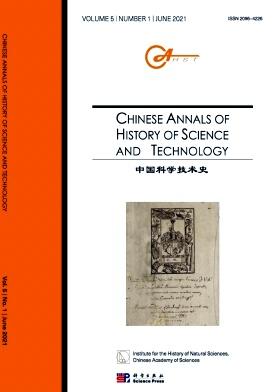Mechanization of Hearing in Chao Yuen Ren’s Dialect Research, 1927–1936: Senses, Objectivity, and Observation1
Chinese Annals of History of Science and Technology
Pub Date : 2019-12-01
DOI:10.3724/sp.j.1461.2019.02094
引用次数: 0
Abstract
When scientific research began in early twentieth-century China, a key issue was the acquisition of reliable empirical information through objective and precise observations. This article examines a specific case where a scientist grappled with such an issue: the linguist Chao Yuen Ren’s application of mechanical means in his phonetic studies. In the 1920s–1930s, Chao conducted a series of field and lab studies on the dialects in southern and central China. In contrast to traditional scholars’ exclusive reliance on sharp ears and rhyme books, Chao employed mechanical devices to inscribe and analyze the spectrographs of dialectical tones and used phonographs to record the articulations of his subjects. It is demonstrated that Chao’s machines not only provided a new method of observation; they also altered the theoretical understanding of certain fundamental categories in Chinese phonology, such as tones. Moreover, Chao did not aim to replace human perception with automatic mechanisms in empirical investigations. Rather, the use of machines in his research called for an active and engaged scientific persona.赵源仁方言研究中的听觉机械化(1927-1936):感觉、客观与观察
当科学研究开始于20世纪初的中国时,一个关键问题是通过客观和精确的观察获得可靠的经验信息。本文考察了一位科学家解决这一问题的具体案例:语言学家赵源仁在他的语音研究中运用机械手段。在20世纪20年代至30年代,Chao对中国南部和中部的方言进行了一系列的实地和实验室研究。与传统学者对敏锐的耳朵和韵书的完全依赖相反,赵用机械装置来铭刻和分析辩证音调的谱图,并用留声机记录他的研究对象的发音。Chao的机器不仅提供了一种新的观察方法;它们还改变了对汉语音系中某些基本类别的理论认识,例如声调。此外,Chao并不打算在实证研究中用自动机制取代人类感知。相反,在他的研究中使用机器需要一个积极参与的科学人物。
本文章由计算机程序翻译,如有差异,请以英文原文为准。
求助全文
约1分钟内获得全文
求助全文

 求助内容:
求助内容: 应助结果提醒方式:
应助结果提醒方式:


